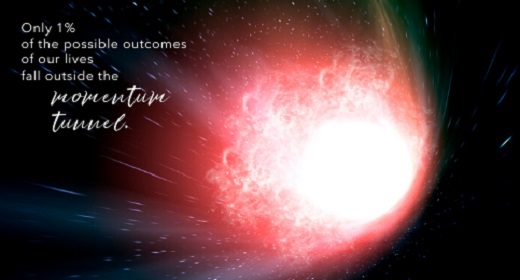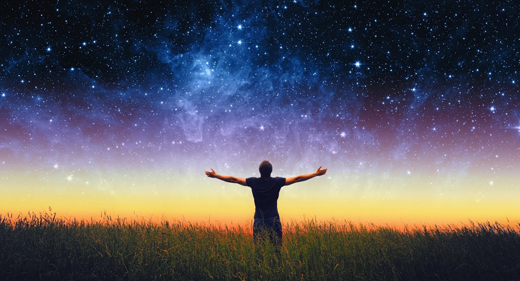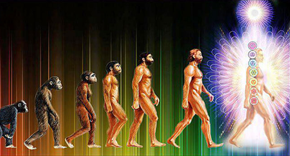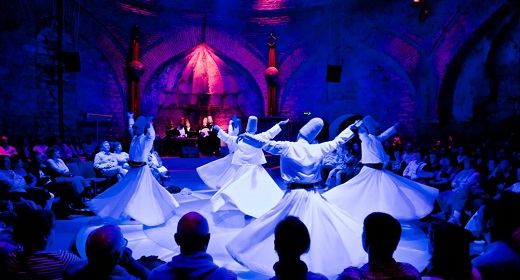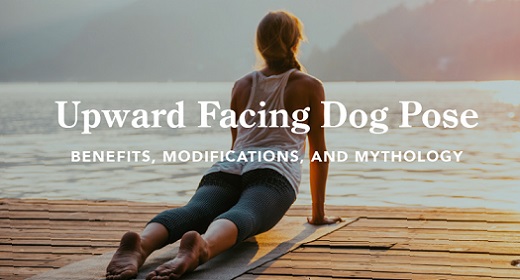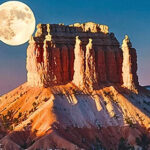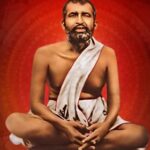by Emily Jull: Faith traditions have the potential to give their practitioners many profoundly important aspects with which to facilitate life and death…
Some people are born into such a tradition, some seek their tradition out, and some their tradition seems to find them. In this way, how an individual finds their community, the challenges, the joyful union, can be like a love affair. This analogy seems particularly apt for Sufis, who have a long tradition of embracing the concept of loving union with the divine. My personal relationship with the Sufi tradition has not been someone looking for, or finding their tradition, but it has been someone finding many of those profoundly important aspects. For that I consider the Sufi tradition responsible for igniting much of the fire of divine union in me.
My draw to the Sufis has always felt innate. From the time I was little I dreamt of spinning. At times I would levitate off the ground and I always knew these dances were very special, sacred. Sometimes I would try to recreate them when I woke up. I was raised without religion of any kind, but the Christianity I saw around me seemed oddly tragic. Despite my secular and Christian surroundings, I knew the divine to be pure love, indescribable in any other way, but always reachable.
My introduction to the world of the Sufis, like so many other North Americans, was through the poetry of Jalal ud-Din Rumi. I no longer recall the exact poem, it was over twenty-five years ago, but I do recall the feeling. I felt understood in a way I never had before. It felt like coming home and falling in love. He gave words to my deepest knowing, that no one else saw and oh they were the most beautiful words! His words still are:
By love, bitter things are made sweet and copper turns to gold.
By love, the sediment becomes clear and torment is removed.
By love, the dead are made to live.
By love, the sovereign is made a slave.
This love is the fruit of knowledge. When did folly sit on a throne like this?
The faith of love is separated from all religion.
For lovers the faith and the religion is God.
O spirit, in striving and seeking become like running water.
O reason, at all times be ready to give up mortality for the sake of immortality.
Remember God always, that self may be forgotten, so that your self may be effaced in the One to Whom you pray, without care for who is praying, or the prayer. – Rumi (Fadiman & Frager 1997, 117)
Many years later, in a class on Middle Eastern religions I would learn that there were terms for what I was recognizing as absolute Truths in the words of Rumi: dhikr- the act of consciously remembering God, leading to Fana- the annihilation of the (lower) self to make way for the awareness of union with God- Baqa. But at this point so many years ago, as a teenager, I just knew for the first time in my life I was not alone in how I understood the divine.
I learned more about Rumi very slowly because I was afraid I would uncover something that would disconnect me from my new-found kindred spirit. In time I found out about the Mevlevi Order he founded and their practice of whirling. I was overjoyed, reminded of my dreams, and knew I needed to see them. I watched films of the whirling and started making plans to go to Turkey in the summer of two thousand. There were safety concerns, so the trip was switched to Morocco and at the time I did not know I could search out Sufi links there as well (these Sufis would eventually come to me). I would have to wait another seven years to see a whirling dervish in person, but it was worth the wait. My husband and I were invited to an evening celebrating Turkish culture, which culminated in a dance by a single dervish, Adam Karsli. I expected it to be beautiful, but I did not expect to fell completely opened by it. I cried through the entire dance. Adam’s movements were awakening the part in me that had forgotten I could be aware of my connection to, my fullness of, divine love at any moment. This was dhikr and I was profoundly grateful.
Witnessing that dance was a part of a series of events which led me to change my entire life. I left my marriage and career. I went back to school, so I could work towards offering spiritual care at the time of death. Sufism was a big part of these life changes. It guided and informed me with its wisdom even though I was not a practitioner. Also moved by the death of my best friend’s only child, I started to look at how we medicalize death in our culture. I became interested in how this has led to a greater fear of, and lack of ownership of our own deaths. In our culture we divided the religious from the non-religious at this vulnerable time in how we care for them. It includes how we train our chaplains and other spiritual deathcare providers. This means, that too often, those who do not strictly identify with a religion end up under supported emotionally and psychologically with their fears around death. Those who are religious often have greater support, but also may have fears inspired by their particular religion. My focus has become clearer over the years, and my primary interest is the fear of death itself, which as I said can affect both the religious and non-religious. I am studying to find helpful tools for people with diverse beliefs. Unsurprisingly to me, the greatest sources of wisdom I have found for this project in the Abrahamic faiths has been in Sufism.
The gifts of Sufis to alleviate death anxiety are potentially many but there two main contributions I have found are “Fana” and “God as love”. Fana, which is also known as “die before you die”, is the concept of breaking down the ego, which in Sufism is seen as separating us from the realization of union with God. The ego tells us to over-value worldly aspects. On our death beds this leads to an excess of fear for two reasons. One, there is a concern of a wasted life. People sometimes feel they have spent their life investing in what does not matter, such as objects and status, and not enough in what does, such as authentic relationships. I have come across this issue repeatedly: in studies done of regrets of people who are dying, documentation by hospice nursing staff and time spent with the dying (example: Ware, 2012 and Callanan & Kelley, 1997). People often have a fear of letting go if their life does not feel full and authentic, it creates meaninglessness to life and death. The other way ego creates fear at the time of death is by tells us to focus on it as “self” and the worldly, it has us focus on precisely what is lost in death. Ego sets us up for nothing but excruciating fear in death, deluding us into believing it is a time of tragic annihilation. This is why the Sufi concept of Fana is an essential gift to help not only with the union of God, but also with the ability to live fully and die peacefully. The argument can be made these are all the same thing. In the process of “dying before we die” we gain a consciousness of living as though we were on our death bed, letting go of worldly aspects that do not serve us, which separate us from the love in our lives. Whether you are a Sufi, religious, spiritual or not at all, this allows you to access Love as a constant presence, in yourself and others. This also helps us learn to trust this Love above our own ego at that most vital time, our own death. While for Sufis this is a religious practice I hope to look at this concept further to help a variety of people.
This leads to the other significant gift Sufism offers to elevate death anxiety. It is specifically useful to people who have a fear of being judged by God at or after death. This is not an uncommon fear among people in the monotheistic faiths, especially Christians (Hadad 2009, 28-30). In Sufism the understanding of God as pure love and mercy is celebrated in many forms of art and culture. This concept could be used to ease the fear in others who would be helped by picturing reuniting with God as a loving experience. Even if they believe there is going to be judgment, to integrate the concept of that coming from the presence of more wisdom, love and mercy than we can comprehend could help turn death from a time of fear to a time of comfort. As the great Sufi mystic Rabia Basri said “Death is a bridge whereby the lover rejoins the Beloved” (Fadiman & Frager 1997, 253). I believe this could be one of the greatest ways Sufis can, and do, help change the world, by integrating far more love into people’s understanding of God.
Through this understanding of death as union with God mourning can become celebration and I was fortunate enough to attend such an occasion, the seven hundredth and forty second anniversary of Rumi’s death, also known as his “wedding night”:
When you see my funeral, don’t say, “What a separation!”
It is time for me to visit and meet the Beloved.
Since you have seen my descent, then do see my rising.
Why complain about the setting of the moon and the sun?
Which seed that went under the earth failed to grow up again? – Rumi (Fadiman & Frager 1997, 256)
I was invited to the Canadian Sufi Cultural Center by a Turkish friend for a dhikr ceremony and I had no idea what to expect. My awareness began to change with my dressing for the occasion. I was conscious of how it could be a sacred practice to dress, and I felt honoured to have an occasion to enter that space. We went with a few other students. The men and women entered by different doors meeting up again in the basement, where there was a library and a playroom for the children. We looked at the books and then all went upstairs to the main space together. I was immediately embraced by the warmth of the community and could feel where my place was. I was with the women. I was new, and people would help me figure things out, but I did not feel like an outsider. The children belonged everywhere. I remembered this energy from Morocco and Muslim families I met in India. It was a beautiful hospitality that is about more than the sharing of their fantastic food and tea; it is about kindly making space in their community for others, even for just a time.
The dhikr ceremony went in stages and we stayed for the whole wonderful evening, about four or five hours. The process included chanting and singing prayers and Rumi’s poetry, lea by men who gathered in a circle in front of a stunning mihrab. I was reminded by it and the beautiful calligraphy I saw, representing the names of Allah, that there were no images of God or Mohammad present. I contemplated how this fosters a more personal understanding of the divine and helps to prevent limitations in understanding God. These thoughts and the energy of that night gave me a taste of the euphoric limitlessness that the drunken Sufis must have lived in. While the men chanted, sang and swayed in their circle, the women did the same off to the side, in rows. The children ran, sang and danced between. I could not help but think a couple of them must have been Rumi there with us. We prayed, and I loved the full prostrations. It felt like sacrificing my ego into the fires of love, each time I went down. These stages were broken up by a lovely meal and later with tea and sweets. My very favourite part of the evening though was the Sema or “Whirling Prayer Ceremony”, and this time there were five Dervishes. I excitedly noticed one of them was Adam. He was wearing a different coloured head piece from the others. I asked my friend about it and she explained that his black hat meant he was in the lead position, so he would be guiding instead of whirling. She said he recently had surgery, so he was unable to strain himself but still wanted to take part. At first, I was disappointed, but as I watched the Sema I felt full of love again. Then I noticed Adam. He was swaying, and I could tell he was being called. His face was a mixture of the ecstasy I witnessed last time I saw him and a sliver of anguish. It was obvious it was taking everything in him not to whirl, not to answer the call to be united fully with God in the way he knows how. To this day it is one of the most beautiful things I have ever seen. These two examples of Adam’s whirling were like witnessing the Rumi poem of my teenage-hood in person. Being able to actually see someone’s union and near union was another huge gift. It made me realize that even though I did not feel right aligning myself with a certain religion I could say that was one of my foundational beliefs, mysticism- the direct and personal union with the divine. And so, thanks to the Sufis, and once again a particular Dervish, I felt a direct bond with others in my understanding of God.
By this time, I had come to realize the Sufis were my most profoundly significant personal spiritual guides. They shared space with Buddhists and Hindus, as important teachers in my search of great wisdom for fear alleviation around death. They shared space with other mystical and non-dualist traditions as my essential advisors. I knew by now that the dear Sufis could speak to me about God more deeply than others. And on my path, they were always my introduction, my loving lodestar and translators. So, I joined the Sufi student club, took classes where I could learn more about them, and I met more Sufis. I wanting to be more mindful about seeking their teaching. They have continued to be inspiring for me. When a group values a quality, its expression is admired. I have noticed the Sufis I have met are generally loving, creative, humble and intelligent, an expression of their collective value of love, modesty, wisdom, knowledge and the artistic expression of the love of God. That is a lot of characteristics to enjoy about a group of people, who have been kind about my status as a curious and adoring visitor.
This led to my invitation to a celebration on December tenth for the Prophet Mohammad’s birthday- Mevlud-i-Nabi. While my previous introduction to Sufi dhikr ceremonies had been from a Turkish cultural context I was told this one was coming from a Moroccan one. I could not help but smile, knowing that I had not truly understood what that country held when I was there. Unlike the celebration for Rumi which took place in a fairly large, beautifully decorated, specifically designated space this one took place at Harris House. Harris House is a Laurier University designated house for “global engagement”, including events like this. We all took over a large open concept living room-kitchen area, and while it was not visually appealing it was wonderfully intimate and family like. The set up was somewhat similar to the Turkish dhikr- the men created a circle where they chanted and sang prayers and poetry. The women sat on chairs and couches around them. The children, who were all wearing prayer beads, sat with their parents or played where they liked. Most of the adults wore thobes, the men’s were generally white, which they wore with orange caps. The night opened with a comment from Sufi Jason Sparkes who explained that we were celebrating the Prophet’s birth, and that the language would generally be Arabic with some English additions. It was obvious that there was a mix of Sufis and visitors, and as with my previous experience we were being given a clear indication we were not only welcome but wanted. When the men got into position Jason said a prayer asking for love and mercy for all who were there, then love and mercy for all who loved all who were there, and then love and mercy for all who loved all who loved all who were there. It was a stunning image of the flowing love and mercy of God. The previous Sufi gathering had been very powerful even without understanding the language, this addition of some English was very exciting and gave me an even deeper understanding.
The music was simple, a couple drums and maybe a dozen men singing but it was exceptional. Again, on this night the Sufis were reaffirming that we understand prayer in the same way. I was reminded of my youth, and my love of drum circles. I felt as though I could get close to something significant, something spiritual, at these. I would dance as people drummed and chanted. After one I had a profound experience, a great opening. I felt an amazing amount of love for the people present. I felt that love flowing out and out. I had never felt anything like it before. I thought about my stepfather back home who use to abuse me and all I could feel was love for him, I was fully aware of his perfection and his connection to me and everyone. This all came back to me that night at the Prophet’s celebration, a thread of love via music and words through time. Instead of feeling “close to something” as I had before, the music unleashed that same rippling love. The repeated chant of Allah by one of the singers reminded me the song was about God and God is Love. It was a love-prayer to Love. I could not keep my eyes open to study the surroundings, I rocked and swayed, I was called as Adam had been. I felt ecstatic, merely a conduit of flowing love. Later Jason said another prayer asking for oceans of love to drown our egos, and that these oceans would overflow into the room, the city, the province, the country, then he started naming other countries. People also started naming countries. One said “Yemen” and there were lots of murmurs of agreement. And Jason said “oceans and oceans of love into Yemen. And Syria, oceans of love into Syria”. I could feel all my new-found love and heartbreak for Syria and other places that I had previously felt disconnected from. With this I realized how truly exceptional these Sufis are. In the face of such heartbreaking realities they remain committed to love and mercy as the guiding principles. With a world and history that has been so closed to them so often as Muslims, and at times a disrespected sect of such, they remain so open. I felt even more honoured to be there. And I see this as a way of Sufis letting their spirit guide their politics and it is, again, inspiring. I want to know how to lead with my heart instead of my ego. They have clearly been doing this for a very, very long time.
The dhikr ended with candy thrown and the children running around to catch as much as they could. It was such a sweet end to such a beautiful ceremony. We all shared Moroccan style mint tea in stunning little tea glasses and delicious food. I learned that the melancholy Arabic prayer that intrigued me, spoken by a warm-faced older man, was written by Shaykh Muhammad Uthman Abduh al Burhani and is about the martyred grandson of the Prophet, Hussein. I spend most of the rest of the night speaking to Ayman Eldesoki, an Egyptian Sufi scholar who was raised going to ceremonies like these. When I asked him how different the evening was from his experiences in Egypt he said much smaller, but the content is similar. He told me the most wonderful story about the Egyptian poet Al-Busiri and when he composed his poem “Al-Burda”- the mantle, in which he is healed in his sleep by the laying of Mohammad’s mantel on him. And how roughly seven hundred years later inspired by this thousand verse poem, Nahj Al Burda wrote his own. Ayman explained that Al Burda wrote his in the same style, with the same themes and the same number of versus. He managed to get two hundred versus done but was having problems finishing. Then he had a dream where Al-Busiri came to him and said it will take ten years and a significant event before you can finish. Al-Busiri’s dream-premonition was right and Burda did not finish the piece until he went into a coma ten years later. When he woke up from it he wrote the rest down. It had been given to him in a dream, just as Al-Busiri’s had been given to him along with his healing. Burda entitled his piece “Nahj Al Burda”- the way of the mantle. I walked home that night thinking about the mystical and healing power of story-telling and dreams.
These themes stayed with me as I thought about the fact that my father and daughter are poets, short-story and fiction writers, and my mother has been interpreting people’s dreams for as long as I can remember. This keeps happening. I spend time with Sufis and things that I know are sacred and significant from my past are confirmed by them as routes to God. This relationship has me thinking. I believe that eventually all routes are to the divine and that this is what gets the mystic “drunk”, that state of “Wahdat al Wujud” when a being truly realizes the oneness of God, and they are lost in that love. I think I am continually being directed. There is more ego and fear to be let go of, some more bliss to be embraced. It is quite funny. I have not sought this out like Majnun for Layla but instead like a curious child just wandering into a vast mosque library.
My time with Sufis in books, art, dance, conversation and friendship has all been a profound gift to me. They have collectively guided my work and more importantly my heart. I will continue to open myself to Sufi teachings, aware now more than ever that there is something deeply rich in them for me. I need to practice dhikr and fana as I long for baqa.




